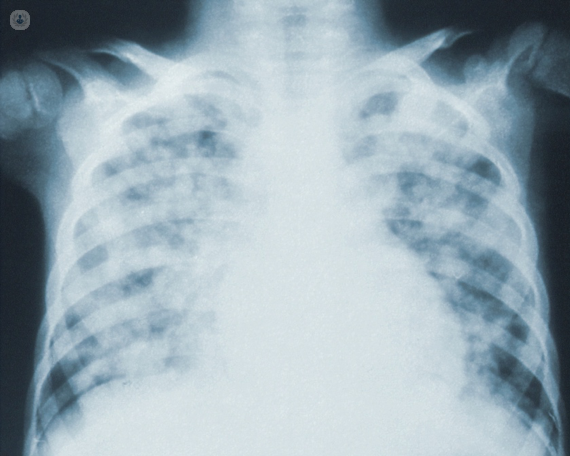Shortness of breath: causes and treatment
Autore:Ever experienced shortness of breath? When we find it difficult to breathe or to catch our breath this is also known as dyspnea. If it’s persistent or severe, it will likely indicate an underlying medical condition.

We spoke to leading pulmonologist, Dr Farid Bazari, to clarify the causes of shortness of breath, to find out what it feels like, as well as how it is examined and treated.
What does shortness of breath feel like?
It can be quite a distressing symptom if it happens in the context of chronic lung disease, in the context of a new lung disorder or a new problem with the breathing. It can be a concerning symptom if it is unexplained. Shortness of breath or air hunger always needs investigation to allow treatment to be directed to the underlying cause, as well as to alleviate the symptom.
What can cause shortness of breath?
In my area of work in respiratory medicine, it can be related to any area of the functioning of the lung, such as the large airways, the small airways known as bronchioles, alveoli, the air sacks where the lung exchanges air, or it may be to do with the haemoglobin. Additionally, it can be caused by breathing muscle weakness, alongside problems outside of the lung, for example the effectiveness of the circulation to carry the oxygenated blood.
The function of the lungs would need to be examined. During a clinical assessment, I would go through a structured process by a thorough history, investigating symptoms by performing tests that may highlight conditions contributing to breathlessness, identifying the underlying cause of the symptoms and diagnosis of the shortness of breath.
What actions should someone take while it’s hard to breathe?
It depends on what’s causing it and how severe it is. If it is very severe or acute, then this should always be assessed by a medical specialist and sometimes this may be a medical emergency. If you cannot breath well at rest, then I would advise to seek emergency medical attention, as there may be a need for oxygen therapy and other urgent therapy.
In the case of slowly increasing shortness of breath, episodic shortness of breath, or chronic breathlessness, then this should be investigated by a respiratory specialist so the underlying cause can be identified and treatment directed to the specific underlying disorder.
In the case of chronic lung disorders causing shortness of breath, we use a range of pharmacological therapies with prescribed medicines to alleviate the symptoms, but sometimes simple cool air such as opening the windows, and using a hand-held fan can alleviate some of the symptoms of shortness of breath.
How is the cause examined?
In my practice, I have a patient centered approach, which means as well as examining the underlying medical disorder by gaining a diagnosis, we focus on what is the effect of the symptom on the patient and their life so we can target the therapy and investigations according to their needs.
I would always start with a thorough history, how the symptoms of breathlessness have begun to occur. This would take into account past medical history, medication use and any other associated symptoms such as chest pain, cough or weight loss.
Following the history, a thorough examination of the respiratory and cardiovascular systems, measuring the oxygen levels and blood pressure may allow additional diagnostic information.
We would usually need to carry out investigation, usually this includes a chest x-ray. We would perform measures of lung function using a variety of tools to measure the function which can be carried out in the clinic room.
Depending on the need for further investigations, we may need to perform further imaging of the lungs with a CT scan, but this is guided by the initial investigations.
How is shortness of breath treated?
It depends on the underlying cause. A number of airway disorders can be treated with inhaler therapies, however, the underlying condition may need other therapies depending on which part of the lungs are affected, the severity of the disorder, and the speed of the onset.
In chronic shortness of breath due to chronic lung disease, we can also use specific medication or non-pharmacological tools to alleviate the symptoms, however, the main focus of therapy is treating the underlying cause as much as possible, which can be instituted after specialist investigations and diagnosis.
If you’re experiencing shortness of breath, do not hesitate to get in touch with a leading respiratory medicine specialist. Visit Dr Farid Bazari’s Top Doctors profile today for more information.


